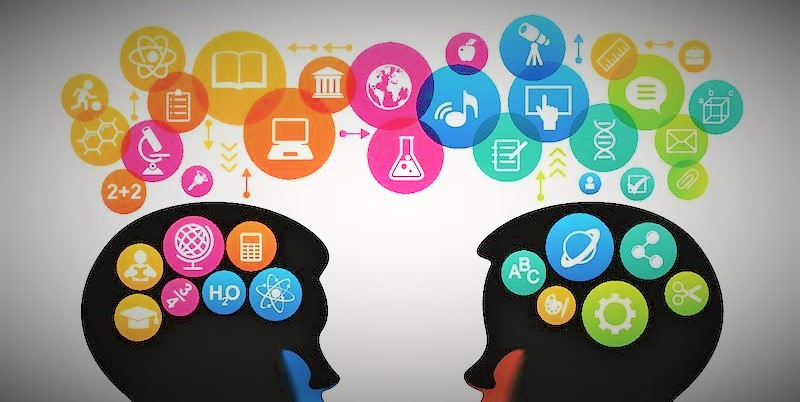Brain Health + Brilliance
Fluency. Awareness. resiliency.
In the modern world, people with potential for brilliance rarely feel brilliant. Despite having impressive cognitive capacities, they tend to be vulnerable to environmental stressors that make chronic low-grade neurological stress commonplace. So although brilliant people tend to develop impressive fluency in specific areas, they often lose the capacity to be present over the course of their life and struggle to tolerate situations in which they authentically confront the unknown.
A New understanding of brilliance
According to doctors pioneering our understanding of neuro-immunology, most cognitive dysregulation is caused by a condition called Chronic Inflammatory Response Syndrome (CIRS). Based on our data, there’s an uncanny relationship between susceptibility to this condition and potential for brilliance.
Clean air = clear brain
Everyone knows the trope of nerds getting bullied. But the real bullies that bright students should be concerned about at school are the toxin-producing microbes that grow in old buildings and dusty HVAC ducts. When bright students breathe contaminated air, they can develop a chronic, low-grade, inflammatory response that makes it challenging to learn. Read about bad air in school and the White House’s Announcement that Indoor Air Quality is our number one public health emergency.
Anxiety, adhd, dyslexia, autism … or just cirs?
When students get evaluated for psychological or cognitive dysregulation, the conventional paths of addressing those challenges amount to accommodation. What if the vast majority of symptoms related to the most common cognitive challenges could be mostly or completely resolved? What if making life brilliant again boils down to addressing chronic neuro-inflammation associated with CIRS?
CIRS: The most common condition no one knows about
- Americans spend 90% of their time indoors.
- Toxic indoor air is common in over 80% of buildings in the US
- 1 in 4 people are genetically susceptible to developing CIRS.
- Secondary causes contributing to CIRS
– Post Covid Syndrome
– Post Lyme’s Syndrome

A Path Back to Your Child’s Native Brilliance
- Give yourself and your child the benefit of 30 years of peer-reviewed research and successful treatment of inflammatory-based illness.
- Understand the Post Covid connection to CIRS.
- Redraw the lines of responsibility for your child’s cognitive performance. Test your home and your child’s school for bad Indoor Air Quality.
CIRS Diagnostics
- VCS Test + 7+ Symptoms Across 13 symptom clusters (3% false positive rate)
- Inflammatory Hormonal Imbalances: (MMP9, TGF Beta-1, C4a = high; MSH, VIP, VEGF = low)
- Proof of exposure in home or school (ERMI or HRTSMI EPA biotoxin dust swiffer tests)
- GENIE transcriptonomics diagnostic
- Neuroquant MRI Brain Scan
Common Symptoms
- Fatigue
- Weakness • Assimilation • Aching • Headache • Light Sensitivity
- Memory • Word Finding
- Concentration • ADHD • Anxiety • Depression
- Joint Pain • Morning Stiffness • Cramps • Clawing
- Unusual Skin Sensations • Tingling
- Shortness of Breath • Sinus Congestion
- Cough • Thirst • Confusion
- Appetite Swings • Body Temperature Regulation • Urinary Frequency
- Red Eyes • Blurred Vision • Sweats • Mood Swings • Ice Pick Pains
- Abdominal Pain • Diarrhea • Numbness
- Tearing • Disorientation • Metallic Taste
- Static Shocks • Vertigo
The Shoemaker Protocol
1. Remove from exposure or remediate source of exposure in the case of Water Damaged Building. EPA-created testing to make sure your child’s home and school are safe is found here.
2. Take a prescription binder (either Cholestyramine or Welchol) to bind to and remove biotoxins adaptive immune system can’t metabolize.
3. Correct anti and pro-inflammatory hormone levels, as needed. (Often unnecessary for early-stage CIRS patients).
4. Return to normal life while using your prescribed binder for maintenance when re-exposure occurs.
Our Brain-Wise Services
Mothering Magic Consulting
The end of self-sacrifice for moms.
Mothers tend to take on the burden of cognitive dysregulation among their children.
If you’re a mother, give yourself and your family members the gift of brilliant brain health and share notes with CEO Ian Siegel and family therapist Katherine Smith, PhD, about being the CEO of your own learning company.





